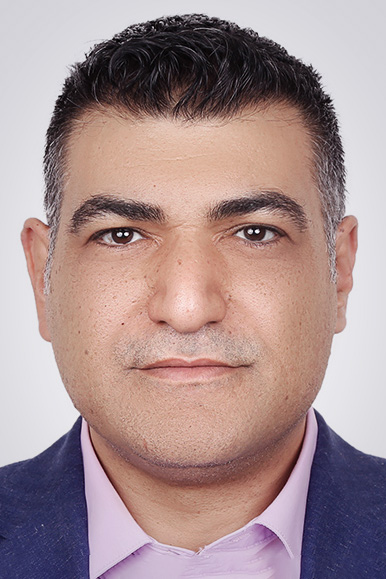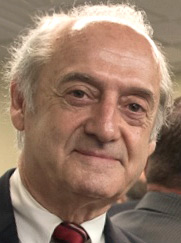

 Meltnet envisions a federated internet model led by BRICS nations, combining digital sovereignty with cross-border interoperability. It challenges US-centric governance by proposing a trust-based architecture rooted in shared standards and mutual recognition. more
Meltnet envisions a federated internet model led by BRICS nations, combining digital sovereignty with cross-border interoperability. It challenges US-centric governance by proposing a trust-based architecture rooted in shared standards and mutual recognition. more
 Poland thwarted a large-scale cyberattack on its energy grid without disruption, offering a rare case study in critical infrastructure resilience, decentralised energy governance, and the balancing act between openness and digital security. more
Poland thwarted a large-scale cyberattack on its energy grid without disruption, offering a rare case study in critical infrastructure resilience, decentralised energy governance, and the balancing act between openness and digital security. more
 Internet governance is shifting from participatory forums to security-driven mandates. As authority accelerates ahead of legitimacy, technical systems face growing instability and operators absorb the risks of politically motivated control. more
Internet governance is shifting from participatory forums to security-driven mandates. As authority accelerates ahead of legitimacy, technical systems face growing instability and operators absorb the risks of politically motivated control. more
 The ICC's new cyber policy reframes Internet infrastructure as crucial to prosecuting atrocities, prompting DNS operators and network providers to grapple with emerging obligations around evidence, neutrality, and cooperation in international justice. more
The ICC's new cyber policy reframes Internet infrastructure as crucial to prosecuting atrocities, prompting DNS operators and network providers to grapple with emerging obligations around evidence, neutrality, and cooperation in international justice. more
 Despite early dismissals from cable giants, consumer demand and real-world use cases proved the value of gigabit broadband. Today, slow uploads and strategic pricing continue to signal an industry reluctant to embrace speed. more
Despite early dismissals from cable giants, consumer demand and real-world use cases proved the value of gigabit broadband. Today, slow uploads and strategic pricing continue to signal an industry reluctant to embrace speed. more
 As ICANN prepares to expand the domain name space, calls grow for a public-law framework to govern the DNS root, ensuring global equity, transparency, and accountability in managing the Internet's core infrastructure. more
As ICANN prepares to expand the domain name space, calls grow for a public-law framework to govern the DNS root, ensuring global equity, transparency, and accountability in managing the Internet's core infrastructure. more
 Today, I share a warning about serious changes to the Community Priority Evaluation (CPE) of the New gTLD Applicant Guidebook. They are not driven by public comment, but by a few voices within the SubPro Implementation Review Team - and they are very likely to lead to disastrous misappropriation of well-known community names, including those of Tribes, Indigenous Peoples and NGOs around the world. more
Today, I share a warning about serious changes to the Community Priority Evaluation (CPE) of the New gTLD Applicant Guidebook. They are not driven by public comment, but by a few voices within the SubPro Implementation Review Team - and they are very likely to lead to disastrous misappropriation of well-known community names, including those of Tribes, Indigenous Peoples and NGOs around the world. more
 The future of the World Summit on the Information Society (WSIS) process will be one of the main topics of the 2025 Internet Governance Forum. Many in the IG community are heavily invested in the renewal of WSIS. They imply that if it is not renewed, there will be major, negative effects on the way we govern the Internet. IGP believes that it is healthy and productive for the community to consider the possibility of ending WSIS. more
The future of the World Summit on the Information Society (WSIS) process will be one of the main topics of the 2025 Internet Governance Forum. Many in the IG community are heavily invested in the renewal of WSIS. They imply that if it is not renewed, there will be major, negative effects on the way we govern the Internet. IGP believes that it is healthy and productive for the community to consider the possibility of ending WSIS. more
 What happens when governments don't just regulate content, but forcibly repurpose the very guts of the Internet's infrastructure to enforce their policies? The chilling answer, increasingly evident worldwide, is widespread, devastating collateral damage. Around the world, neutral systems like Domain Name System (DNS) resolvers and IP routing, the bedrock of our digital lives, are being weaponized as enforcement tools. more
What happens when governments don't just regulate content, but forcibly repurpose the very guts of the Internet's infrastructure to enforce their policies? The chilling answer, increasingly evident worldwide, is widespread, devastating collateral damage. Around the world, neutral systems like Domain Name System (DNS) resolvers and IP routing, the bedrock of our digital lives, are being weaponized as enforcement tools. more
 There's a well-documented crisis facing the domain name system: very few who rely on domain name registration data from the Whois database to perform vital functions can do so any longer, which is escalating consumer harm and abuse on the internet worldwide. And the problems, thanks to ICANN's overly restrictive policy post-GDPR and a failing policy process, are piling up. more
There's a well-documented crisis facing the domain name system: very few who rely on domain name registration data from the Whois database to perform vital functions can do so any longer, which is escalating consumer harm and abuse on the internet worldwide. And the problems, thanks to ICANN's overly restrictive policy post-GDPR and a failing policy process, are piling up. more
 In a contemporary era when the human rights, democracy, and the rule of law are under attack, Europe has asserted itself as the leading global digital steward for maintaining those values. However, doing so through its Digital Sovereignty initiatives is significantly dependent on the ability to produce timely technical standards that underpin the implementing legislation. more
In a contemporary era when the human rights, democracy, and the rule of law are under attack, Europe has asserted itself as the leading global digital steward for maintaining those values. However, doing so through its Digital Sovereignty initiatives is significantly dependent on the ability to produce timely technical standards that underpin the implementing legislation. more
 The terms Digital Sovereignty or Souveraineté numérique have recently risen in prominence to describe the international rule of law as it applies to information and communication technologies. At a time when disinformation is proliferating and the rule of law, democracy, and human rights, together with long-standing relationships, are being cast aside, digital sovereignty is scaling in importance as a key defensive measure among many nations. more
The terms Digital Sovereignty or Souveraineté numérique have recently risen in prominence to describe the international rule of law as it applies to information and communication technologies. At a time when disinformation is proliferating and the rule of law, democracy, and human rights, together with long-standing relationships, are being cast aside, digital sovereignty is scaling in importance as a key defensive measure among many nations. more
 Mark Zuckerberg's recent announcement of sweeping changes to Meta's content moderation policies marks a pivotal moment for the internet, democracy, and truth itself. The decision to replace third-party fact-checking with a decentralized "Community Notes" system and relocate trust and safety operations to Texas signals a shift in Meta's governance approach. This move is not only politically expedient but also a troubling prelude to the tech industry bowing to the political priorities of the incoming Trump administration. more
Mark Zuckerberg's recent announcement of sweeping changes to Meta's content moderation policies marks a pivotal moment for the internet, democracy, and truth itself. The decision to replace third-party fact-checking with a decentralized "Community Notes" system and relocate trust and safety operations to Texas signals a shift in Meta's governance approach. This move is not only politically expedient but also a troubling prelude to the tech industry bowing to the political priorities of the incoming Trump administration. more
 On Friday December 13, 2024 at 10:00–12:00 CET (09:00-11:00 AM UTC) the Lodz Cyber Hub at the University of Lodz Law School, an ICANN EURALO ALS, and the United Nations University – Comparative Regional Integration Studies (UNU-CRIS) hosts an online workshop 'International Law of Critical Internet Infrastructure: A Comparative Analysis of Europe and China'. more
On Friday December 13, 2024 at 10:00–12:00 CET (09:00-11:00 AM UTC) the Lodz Cyber Hub at the University of Lodz Law School, an ICANN EURALO ALS, and the United Nations University – Comparative Regional Integration Studies (UNU-CRIS) hosts an online workshop 'International Law of Critical Internet Infrastructure: A Comparative Analysis of Europe and China'. more
 Sometime by year-end, the UN General Assembly (UNGA) will vote on the proposed UN Convention Against Cybercrime. The treaty is opposed by most civil liberties organizations and Internet businesses, although the US position appears uncertain, mostly for reasons of foreign policy. more
Sometime by year-end, the UN General Assembly (UNGA) will vote on the proposed UN Convention Against Cybercrime. The treaty is opposed by most civil liberties organizations and Internet businesses, although the US position appears uncertain, mostly for reasons of foreign policy. more